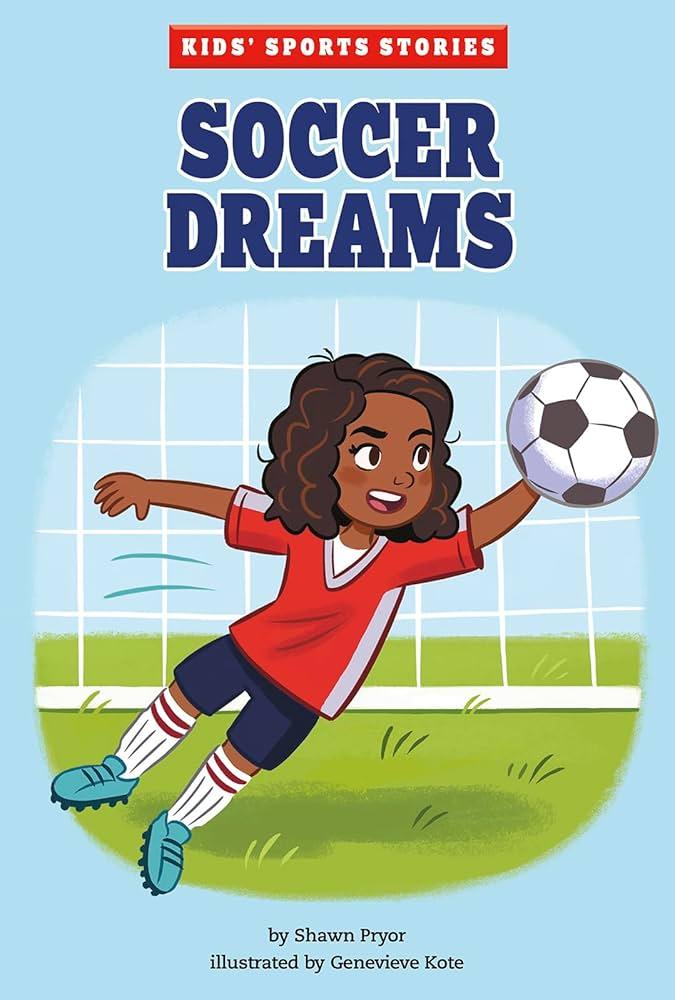A new study challenging long-held beliefs about nurturing children’s aspirations in professional sports has sparked fresh debate among parents, coaches, and educators. Published recently, the research calls into question the effectiveness of early specialization-a popular strategy where young athletes focus intensely on a single sport from a very young age. As families across the nation strive to support their children’s pro sports dreams, the findings suggest that a different approach may be the key to long-term success and well-being. The San Francisco Chronicle explores what this new study reveals and what it could mean for the future of youth sports development.
Best Practices for Supporting Young Athletes Without Pressure
Encouraging young athletes to chase professional sports aspirations requires a delicate balance between motivation and emotional well-being. Recent findings emphasize the importance of creating an environment where children feel supported, rather than burdened by expectations. Experts suggest fostering intrinsic enjoyment of the sport, which can be achieved through positive reinforcement and allowing kids to set their own goals. Parents and coaches should prioritize listening to the child’s needs and celebrating effort over outcome, reducing the risks of burnout and anxiety that often stem from excessive pressure.
Practical approaches to nurturing talent while preserving a child’s love for the game include:
- Flexible scheduling that adapts to the child’s energy and mood rather than rigid training regimens.
- Open communication fostering trust and honesty about challenges and successes.
- Varied athletic experiences to develop overall motor skills and prevent over-specialization.
- Positive role modeling by adults prioritizing well-being alongside athletic goals.
| Practice | Benefit |
|---|---|
| Encouraging autonomy | Boosts motivation and confidence |
| Setting realistic goals | Prevents frustration and stress |
| Balanced competition | Maintains enjoyment and growth |
| Regular rest periods | Supports mental and physical recovery |
The Role of Parental Encouragement Versus Autonomy in Sports Development
Recent research contradicts the long-held belief that constant parental encouragement is the key to developing future professional athletes. Instead, the study highlights the significance of nurturing autonomy in young athletes, suggesting that children who feel a sense of control over their sports involvement show greater motivation, resilience, and long-term commitment. This autonomy-supportive approach encourages kids to make their own decisions about practice routines, goal setting, and even selecting sports, which ultimately fosters intrinsic motivation rather than dependence on external validation.
Key findings from the study outline several important factors that parents and coaches can emphasize to effectively support young athletes:
- Choice and Ownership: Allowing children to influence their training schedules and goals.
- Emotional Support: Providing encouragement without applying pressure or making participation contingent on performance.
- Positive Feedback: Emphasizing effort and personal growth over winning or accolades.
| Parental Approach | Impact on Athlete | Long-Term Outcome |
|---|---|---|
| Overbearing Encouragement | High pressure, dependency | Burnout, early dropout |
| Autonomy Support | Empowerment, motivation | Persistence, professional pursuit |
How Early Specialization Impacts Long-Term Athletic Success and Well-being
New research is casting doubt on the long-held notion that early specialization in a single sport guarantees future success. While focusing intensely on one discipline from a young age may produce early achievers, mounting evidence suggests it can come at a significant cost to both performance and overall well-being later in life. Experts warn of increased risks including burnout, overuse injuries, and psychological stress, which frequently lead to premature dropout from athletic pursuits.
Key findings from recent studies highlight:
- Multi-sport participation correlates with better motor skill development and injury prevention.
- Delayed specialization often results in longer athletic careers and higher peak performance.
- Emphasizing enjoyment and variety strengthens motivation and mental health.
| Aspect | Early Specialization | Multi-Sport Approach |
|---|---|---|
| Injury Risk | High | Moderate |
| Burnout | Common | Rare |
| Long-Term Success | Uncertain | More Likely |
| Enjoyment & Well-being | Often Lower | Typically Higher |
Expert Recommendations for Balancing Passion and Play in Youth Sports
Leading youth sports experts emphasize that fostering a child’s athletic ambitions requires more than just rigorous training schedules; it is equally about cultivating joy and intrinsic motivation. Coaches and parents are encouraged to create environments where kids can explore their talents without the pressure of immediate results. Incorporating playful drills, varied activities, and unstructured practice time not only enhances skill development but also protects against burnout and emotional fatigue. Recent insights suggest that balancing passion with play encourages resilience and long-term engagement rather than fleeting performance peaks.
To implement this balance effectively, experts recommend focusing on the following key strategies:
- Prioritize fun: Ensure each session includes activities that feel like games, easing competitive stress.
- Encourage autonomy: Allow kids to make choices about their practice routines and goals.
- Rotate sports: Promote multi-sport participation to develop diverse motor skills and prevent overuse injuries.
- Set realistic goals: Focus on personal growth milestones rather than external validation or comparative success.
| Recommendation | Benefit | Application |
|---|---|---|
| Play-first approach | Motivation & enjoyment | Integrate games in every practice |
| Multi-sport involvement | Skill diversity | Schedule seasons across different sports |
| Parental support | Emotional stability | Focus on effort, overlook scoreboard |
| Flexible goal-setting | Long-term commitment | Personal benchmarks vs. competition |
The Way Forward
As the conversation around youth sports continues to evolve, this new study invites parents, coaches, and policymakers to rethink long-held assumptions about nurturing pro sports dreams. Rather than simply emphasizing early specialization or intensive training, the findings suggest a more balanced, supportive approach may better serve young athletes’ long-term development and well-being. As families in the Bay Area and beyond navigate these choices, experts stress the importance of fostering both passion and resilience-key ingredients for success on and off the field. The San Francisco Chronicle will continue to follow this story as new insights emerge, shedding light on how best to support the next generation of sports talent.





